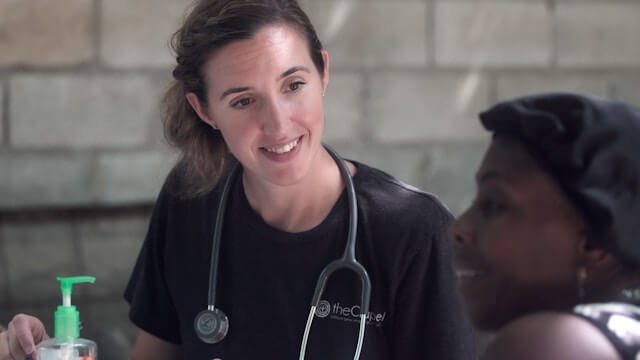If you’re working in healthcare or considering a nursing career, understanding that effective communication in nursing isn’t just part of the job—it IS the job—will fundamentally change how you practice and how successful you become.
Why Communication is the Heart of Everything We Do in Nursing
Let me be blunt about something most nursing schools don’t emphasize enough: you can have perfect technical skills, but if you can’t communicate effectively, you’ll struggle as a nurse. Here’s why communication matters so much in healthcare settings.
Patient Safety Depends on Clear Communication
I’ve seen medication errors happen because a nurse didn’t clearly communicate a patient’s allergy history during shift change. I’ve watched patients fall because the day shift didn’t properly explain mobility restrictions to the night shift. Poor communication kills people—it’s that serious.
When communication works well:
- Patients understand their conditions and treatments
- Healthcare teams coordinate care seamlessly
- Families feel informed and involved
- Medical errors decrease significantly
- Patient satisfaction scores improve dramatically
Trust Building Happens Through Words and Actions
Patients are vulnerable. They’re scared, in pain, and dependent on strangers for their most basic needs. The way you communicate—your tone, your body language, your choice of words—either builds trust or destroys it.
Communication Affects Healing Outcomes
Research consistently shows that patients who feel heard and understood by their healthcare providers recover faster, have fewer complications, and report better pain management. This isn’t just feel-good stuff—it’s measurable medical impact.
When patients trust their nurses and understand their care:
- They’re more likely to follow treatment plans
- They report symptoms more accurately
- They participate actively in their recovery
- They have less anxiety and stress
- Their families are more supportive of the care plan
Professional Relationships in Nursing Depend on Effective Communication
Nursing is teamwork. You’ll spend your career working closely with doctors, other nurses, therapists, and support staff. Your ability to communicate clearly and professionally has a direct impact on the effectiveness of these relationships.
The nurses who advance in their careers aren’t always the ones with the best clinical skills—they’re the ones who can communicate effectively with colleagues, patients, and families under pressure.
Also Read: Best Online Nursing Training Courses with Certificates for Beginners and Healthcare Workers Courses
Types of Communication Every Nurse Must Master
Verbal Communication: Your Words Matter More Than You Think
Verbal communication in nursing goes far beyond just talking to patients. It’s about choosing the right words, using the appropriate tone, and timing your conversations effectively.
Therapeutic Communication Techniques:
Open-ended questions: Instead of “Are you okay?” try “How are you feeling right now?” This gives patients permission to share more than a simple yes or no.
Reflection: “It sounds like you’re worried about the surgery tomorrow.” This shows you’re listening and validates their feelings.
Clarification: “When you say the pain is bad, can you help me understand what that means for you?” This ensures you understand what the patient is actually experiencing.
Summarizing: “Let me make sure I understand. You’re saying the pain is worse when you move, and it feels sharp rather than dull?” This confirms understanding and shows attention to detail.
Professional Communication with Colleagues:
Healthcare settings are fast-paced and high-stress. Your communication with other healthcare providers needs to be clear, concise, and complete. Learn to use SBAR (Situation, Background, Assessment, Recommendation) for reporting changes in patient condition.
For example: “Dr. Smith, I’m calling about Mrs. Johnson in room 302. She’s post-op day 2 from hip replacement, and I’m concerned because her heart rate has increased from 78 to 110 over the past hour, her blood pressure is down to 95/60 from her baseline of 130/80, and she’s reporting increased pain despite recent medication. I think she may need evaluation for possible bleeding.”

Non-Verbal Communication: What You Don’t Say Speaks Volumes
Studies show that 55% of communication is body language, 38% is tone of voice, and only 7% is actual words. In nursing, your non-verbal communication can be more important than what you say.
Body Language That Builds Trust as a Nurse:
Eye contact: Maintain eye contact with patients when they’re speaking to you. This shows respect and attention. However, be culturally sensitive—some cultures view direct eye contact differently.
Open posture: Avoid crossing your arms or turning away from patients. Face them directly when possible.
Appropriate touch: A gentle hand on the shoulder can provide comfort, but always ask permission first and respect cultural boundaries.
Facial expressions: Your face should match your words. If you’re saying “I understand this is difficult,” but you look impatient or distracted, patients will notice.
Common Non-Verbal Mistakes Nurses Make:
- Looking at your phone or computer while patients are talking
- Standing over patients while they’re in bed (sit down when possible)
- Rushing body language—quick movements, checking your watch
- Closed-off postures that make you seem unapproachable
- Facial expressions that don’t match your words
I once worked with a nurse who was technically excellent but struggled with patient satisfaction scores. After observing her, I realised she had a habit of checking her watch while patients were talking. Patients interpreted this as impatience, even though she was genuinely caring. Small changes in body language made a huge difference in how patients perceived her.
Written Communication: Documentation That Protects and Informs
In healthcare, if it’s not documented, it didn’t happen. Your written communication skills have a direct impact on patient care continuity and legal protection.
Effective Nursing Documentation:
Be specific and objective: Instead of “Patient seems upset,” write “Patient states ‘I’m worried about my family’ with tears in eyes and voice shaking.”
Use proper medical terminology: Learn the language of healthcare so you can communicate precisely with other professionals.
Timestamp everything: Include specific times for assessments, interventions, and patient responses.
Focus on facts: Document what you observe, what patients tell you, and what you do—not your interpretations or assumptions.
Professional Email and Electronic Communication:
More healthcare communication happens electronically now. Your emails and electronic messages should be:
- Clear and concise
- Professional in tone
- Free of abbreviations that could be misunderstood
- Focused on patient care needs
- Sent only to appropriate recipients
Digital Communication: Navigating Modern Healthcare Technology
Healthcare technology continues evolving, and nurses must communicate effectively through electronic health records, messaging systems, and telehealth platforms.
Electronic Health Record Communication:
- Use templates and quick phrases efficiently without losing personalization
- Ensure all team members can understand your entries
- Follow institutional guidelines for abbreviations and formatting
- Include relevant details that help other providers understand patient needs
The Diploma in Nursing and Patient Care program comprehensively addresses all these communication types, with practical exercises that help you develop both traditional and modern communication skills demanded by today’s healthcare environment.
Common Communication Barriers in Hospital Settings
Healthcare environments create unique communication challenges. Understanding these barriers helps you overcome them more effectively.
Time Pressures and Staffing Challenges
The Reality: You’re caring for multiple patients, dealing with emergencies, and trying to complete documentation. Finding time for meaningful communication can feel impossible on some days.
Solutions That Work:
- Use walking time between rooms to prepare what you need to communicate
- Combine communication with clinical tasks when appropriate
- Learn to prioritize which conversations can’t wait versus which can be scheduled
- Practice efficient communication techniques that convey caring without taking excessive time
I learned to assess patients while talking with them about their concerns. Taking vital signs doesn’t require silence—it’s actually a perfect time for therapeutic conversation.
Cultural and Language Differences
The Challenge: Healthcare serves diverse populations with different cultural backgrounds, languages, and health beliefs.
Effective Approaches:
- Learn about common cultural practices in your community
- Use professional interpreters, not family members, for medical translation
- Ask patients about their cultural preferences regarding communication
- Respect different approaches to decision-making and family involvement
- Understand that direct communication styles vary across cultures
Example: In some cultures, patients expect family members to receive medical information first, whereas others prefer direct communication with the patient. Asking about preferences shows respect and improves outcomes.
Emotional Barriers and Stress
The Reality: Patients and families are often scared, angry, or overwhelmed. Staff members are stressed and sometimes burned out. These emotions create communication barriers.
Strategies for Emotional Situations:
- Acknowledge emotions before trying to provide information
- Use calm, steady tones even when others are upset
- Give people time to process difficult information
- Offer support without trying to “fix” everything
- Know when to involve other professionals like chaplains or social workers
Technology Barriers
Modern Challenges:
- Electronic health records can create barriers between nurses and patients
- Communication devices can be distracting
- Some patients struggle with patient portals and electronic communication
- Technological failures can disrupt the communication flow
Balancing Technology and Human Connection:
- Make eye contact even when using computers
- Explain what you’re documenting as you work
- Put devices away during important conversations
- Help patients navigate electronic communication tools
- Have backup communication plans when technology fails
Hierarchy and Professional Dynamics
The Challenge: Healthcare has traditional hierarchies that can inhibit communication, especially for new nurses who may feel intimidated speaking up.
Building Confidence in Professional Communication:
- Learn the chain of command but don’t let it prevent necessary communication
- Practice assertive communication techniques
- Use data and specific observations to support your concerns
- Understand when to escalate communication up the hierarchy
- Build relationships with colleagues to improve communication flow

Real-World Communication Scenarios: Learning Through Examples
Let me share some situations you’ll encounter and how effective communication makes a difference.
Scenario 1: The Anxious Family Member
Situation: Mrs. Chen’s daughter has been asking the same questions about her mother’s condition every hour for the past six hours. She’s clearly anxious but is becoming demanding of the staff.
Poor Communication Response: “I already told you this information. You need to calm down.”
Effective Communication Response: “I can see how worried you are about your mother. It’s completely normal to feel anxious when someone you love is in the hospital. Let me sit down with you and go through your concerns again, and then I’ll show you some ways to help your mother that might make you both feel better.”
Why This Works: Acknowledges the emotion, validates the feeling, provides information, and offers a constructive solution.
Scenario 2: The Non-Compliant Patient
Situation: Mr. Rodriguez has diabetes but keeps refusing to check his blood sugar or take his insulin. He becomes angry when staff brings up diabetes management.
Poor Communication Response: “You have to take your insulin. Don’t you understand you could die?”
Effective Communication Response: “I notice you seem frustrated when we talk about diabetes care. Can you help me understand what makes this difficult for you? I’d like to find a way to help that works better for you.”
Why This Works: Avoids confrontation, shows curiosity instead of judgment, and invites collaboration.
Scenario 3: The Overwhelmed New Graduate
Situation: You’re a new nurse feeling overwhelmed by your patient assignment. You need help but don’t want to seem incompetent.
Poor Communication: Saying nothing and hoping you can figure it out, or “I can’t handle this.”
Effective Communication: “I want to make sure I’m providing the best care for my patients. I have some questions regarding the prioritisation of care for Mr Jones and Mrs Smith. Could you help me think through the best approach?”
Why This Works: Shows commitment to patient care, asks for specific help, and frames the request professionally.
Also Read: Best Disability Care Courses with Certificates. Top Support Worker, Dementia Caregiver Certification
Role-Playing Exercises for Skill Development
Exercise 1: The Difficult Conversation Practice explaining a change in the treatment plan to a patient who’s been expecting to go home today but now needs surgery tomorrow. Focus on:
- Breaking bad news gently
- Allowing emotional responses
- Providing clear information
- Offering support and next steps
Exercise 2: Shift Report Communication Practice giving a report on a complex patient using SBAR format. Include:
- Relevant background information
- Current assessment findings
- Concerns or issues
- Specific recommendations or requests
Exercise 3: Family Communication Role-play a conversation with family members who are disagreeing about their loved one’s care. Practice:
- Remaining neutral
- Facilitating discussion
- Focusing on the patient’s best interests
- Knowing when to involve other professionals
These exercises help build confidence and muscle memory for difficult conversations you’ll encounter throughout your nursing career.
Training in Communication Through Professional Education
While you can learn communication skills through experience, structured training accelerates your development and helps you avoid common mistakes that could impact patient care.
Why Formal Communication Training Matters:
Evidence-based techniques: Learn communication approaches that research has proven effective in healthcare settings.
Safe practice environment: Practice difficult conversations without real-world consequences while getting expert feedback.
Cultural competency: Understand how to communicate effectively with diverse populations.
Legal considerations: Learn what to document and how to communicate in ways that protect both patients and yourself.
Conflict resolution: Develop skills for managing disagreements and difficult situations professionally.
The Diploma in Nursing and Patient Care program includes comprehensive communication training that goes beyond basic interpersonal skills. The course covers:
Therapeutic Communication Modules: Interactive lessons that teach specific techniques for different patient populations and situations.
Cultural Competency Training: Understanding how cultural backgrounds affect communication preferences and health beliefs.
Professional Communication Skills: Learning to communicate effectively with physicians, other nurses, and healthcare team members.
Difficult Conversation Management: Strategies for handling conflicts, delivering bad news, and managing emotional situations.
Documentation and Legal Communication: Understanding how written communication protects patients and healthcare providers.
Case-Based Learning: Real-world scenarios that let you practice communication skills in a safe environment with expert feedback.
What makes this training particularly valuable is the combination of theoretical knowledge with practical application. You don’t just learn about communication—you practice it through interactive modules that simulate real healthcare situations.
Hands-On Communication Practice:
The program includes video demonstrations of effective communication techniques, showing you exactly how experienced nurses handle challenging conversations. You can watch these demonstrations multiple times and practice the techniques yourself.
Interactive Scenarios: Work through communication challenges with immediate feedback on your responses. This helps you develop instincts for effective communication that will serve you throughout your career.
Self-Paced Learning: Develop your communication skills at your own pace, with the option to repeat modules until you feel confident in your abilities.

Building Advanced Communication Skills
Once you’ve mastered basic communication, there are advanced skills that separate good nurses from exceptional ones.
Motivational Interviewing Techniques
Learn to help patients find their own motivation for behaviour change rather than trying to convince them. This is particularly valuable for patients with chronic conditions who need to make lifestyle changes.
De-escalation Skills
Healthcare environments can be emotionally charged. Advanced communication includes techniques for calming upset patients and families, managing conflicts between team members, and preventing situations from escalating to dangerous levels.
Cross-Cultural Communication Mastery
Go beyond basic cultural awareness to develop deep skills in communicating across cultural differences. This includes understanding different decision-making styles, family dynamics, and health beliefs.
Leadership Communication
As you advance in your nursing career, you’ll need to communicate effectively as a leader, mentor, and advocate. This includes skills such as providing constructive feedback, facilitating team meetings, and representing nursing perspectives in interdisciplinary discussions.
Patient Education Excellence
Transform complex medical information into understandable, actionable guidance that patients can actually follow. This includes understanding different learning styles and health literacy levels.
Measuring Your Communication Effectiveness
How do you know if your communication skills are improving? Look for these indicators:
Patient Feedback:
- Patients seem more relaxed when talking with you
- Families, thank you for explaining things clearly
- Patients ask you questions more freely
- Patient satisfaction scores improve
Colleague Recognition:
- Other nurses ask for your help with difficult patients
- Physicians seek your input on patient care decisions
- You’re included in complex care planning discussions
- Colleagues compliment your communication during challenging situations
Professional Growth:
- You feel more confident handling difficult conversations
- Conflicts with patients and families decrease
- You’re considered for leadership opportunities
- You receive positive performance evaluations specifically mentioning communication
Personal Satisfaction:
- Work feels less stressful because relationships are better
- You feel more connected to your patients
- Challenging situations feel manageable rather than overwhelming
- You look forward to patient interactions rather than dreading them
Also Read: How to Practice Basic Nursing Procedures at Home: Complete Guide to Home Nursing Care
Final Thoughts: Communication as Your Professional Superpower as a Nurse
Effective communication in nursing isn’t just about being nice to patients—though kindness certainly matters. It’s about wielding a professional skill that directly impacts patient outcomes, job satisfaction, and career advancement.
Think about the nurses you most admire. I bet they’re not just technically competent—they’re the ones who can connect with anyone, calm the most anxious families, and make patients feel safe during their most vulnerable moments. That’s not accident or natural talent—it’s developed skill.
The Reality of Modern Healthcare:
Technology continues advancing, treatments become more complex, and healthcare delivery methods evolve. But the fundamental human need for connection, understanding, and compassion remains constant. Nurses who master communication skills will always be in demand because they provide something technology can’t replace.
Your Communication Skills Investment:
Every conversation you have with a patient, every interaction with a colleague, every difficult situation you navigate professionally—these are all opportunities to strengthen skills that will serve you throughout your career.
But why leave such important skills to chance? Professional communication training gives you:
- Proven techniques that work in healthcare settings
- Confidence to handle any situation that arises
- Understanding of legal and ethical communication requirements
- Skills that set you apart in a competitive job market
- Tools for advancing into leadership roles
The Career Impact:
Nurses with excellent communication skills:
- Have better patient outcomes and satisfaction scores
- Experience less workplace stress and burnout
- Advance more quickly into leadership positions
- Build stronger professional networks
- Find more job satisfaction and career fulfilment
Take Action: As a Nurse, Invest in Your Communication Skills Today
Don’t wait until you’re struggling with difficult patients or uncomfortable interactions with colleagues to develop these crucial skills. The patients you’ll care for deserve a nurse who can communicate effectively from day one.
The Diploma in Nursing and Patient Care provides comprehensive communication training alongside all the other essential nursing skills you need for a successful healthcare career.
Why This Program Transforms Nursing Communication Skills:
Comprehensive Coverage: Every type of communication you’ll encounter in healthcare settings, from bedside manner to professional documentation.
Practical Application: Interactive modules and real-world scenarios that let you practice skills safely before using them with actual patients.
Expert Instruction: Learn from experienced healthcare professionals who understand the communication challenges you’ll face.
Flexible Learning: Develop skills at your own pace while working or managing other responsibilities.
Global Recognition: Certification that demonstrates your communication competency to employers worldwide.
Career Investment: Skills that will serve you throughout your nursing career and open doors to advancement opportunities.
Your communication skills will impact every patient you care for, every colleague you work with, and every day of your nursing career. Make sure those skills are as strong as your clinical knowledge.
Start building exceptional communication skills today with the Diploma in Nursing and Patient Care. Your future patients—and your career—deserve this investment in professional excellence.
Remember: Great nurses aren’t just clinically competent—they’re communication masters who transform healthcare experiences through the power of human connection. Join them.




